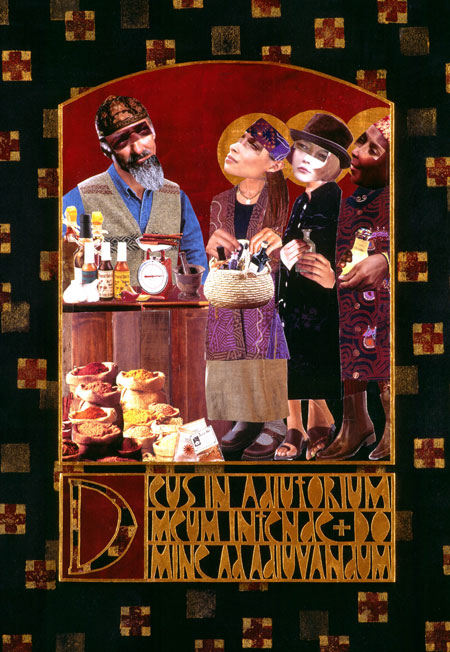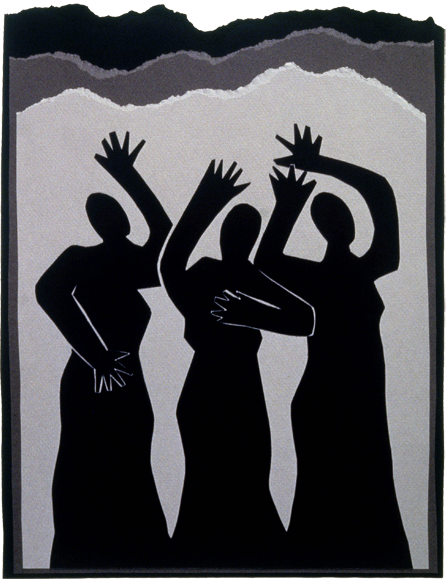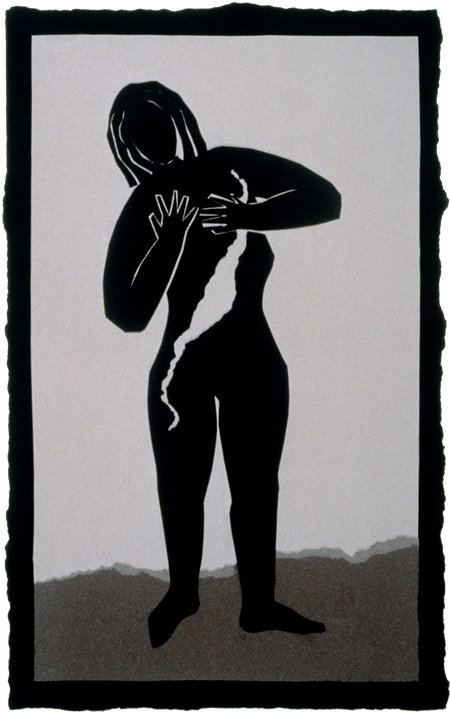When I moved to Atlanta for seminary, I inherited Edward. Edward and my sister, Sally, had worked together when she lived in Atlanta. Sally had moved away by the time I arrived in Atlanta, and though I couldn’t step into her shoes, I had the privilege of being the resident Richardson sister for Edward. A gifted musician with a bit of a wild hair, Edward had a great gift of hospitality. When I think of Edward, I remember shared tables most of all.
A couple of years into our friendship, Edward learned that he had AIDS. At that time, AIDS was still in its early years, when less was known about it and fewer treatment options existed. We hoped, we prayed. And on a morning in Lent about two years later, we gathered for Edward’s funeral at the church where I had gone with him for evensong from time to time.
As we continue to reflect this week on Mark’s story of the woman who anoints Jesus, today’s reflection from Sacred Journeys comes from a letter I wrote to Edward during his illness. And though it tugs at me to read the letter, knowing now what would soon unfold then, what I find myself thinking of—besides those tables we shared—is the point in Edward’s funeral when someone stood and read the scripture Edward had chosen. Edward being Edward, it came from the Song of Songs: “Arise, my love, my fair one, and come away. For now the winter is past, the rain is over and gone. The flowers appear on the earth; the time of singing has come” (Song 2:10-12).
Surely I had read these words before, but their beauty and hopefulness struck me that day as never before. I tucked the words away in a corner of my heart and carried them for years.
When Gary and I married on a bright spring day last year (our first anniversary will fall next weekend, on Easter), this was one of the scriptures that we asked Gary’s son, Emile, to read at our wedding. This, and the passage near the end of the Song that tells of how “love is strong as death, passion fierce as the grave” (Song 8:6).
We stand now on the threshold of Holy Week, when the forces of life and death come to the fore. Edward knew, as Jesus knew, that amid the raging of life and death, love finally holds sway. And while we have breath—and perhaps far beyond this—love bids us pour ourselves out to one another as balm for wounds borne and those yet to come. As did a woman who approached Jesus, just days before his dying, and gave her greatest gift.
Dear Edward,
There were no easy good-byes when I left Atlanta. But it was especially hard leaving you that last time we visited, especially difficult walking out of your hospital room filled with all the flowers and pictures and other gifts from the people who love you and who wish they could give you more. It was hard to hug you that last time while wondering how many more chances we’ll have to do that. I pray there will be many—every day I pray for that.
I know how strong you are—and I don’t mean the kind of strength that people refer to when they say, in awed tones, “You’re so strong” to people they perceive to be battling valiantly in the face of great adversity. I think that can be so distancing. It requires the other person to be so independent, so perfect, so superhuman.
In you, I see strength in your connectedness, both within yourself and with others in your large and incredible community of friends. I see strength in your passion—for your music, your friends, your play, for the things and people you care about. I see strength in your creativity—your desire to write and paint and give shape to what is within you. I see strength in your willingness to let others share this journey with you—knowing that we can’t quite feel your pain the same way you do or take it away but wanting to hold you and be held by you in the process.
Marge Piercy writes about strength as something that is not intrinsic in us but rather moves us as wind moves a sail. I have seen strength move you. You live strongly. You love strongly. You create strongly. You touch strongly. And I pray that the strength that moves you and those you touch may sustain you in these days.
When I heard your voice yesterday, I ached over the distance between us. You—and Ray too—were significant in making Atlanta home for me, and I miss being at home with you, at least at a closer range. Your voice prompted an overwhelming longing for home—for the chance to touch the faces of my family there.
In working on my book lately, I’ve been living with the woman who anoints Jesus’ head. I’m struck by the power of her gift, by the way she touches beyond the borders that her society considers acceptable, by Jesus’ receptivity to her—how he allows himself to be cared for (strength moves him too!). And I wish I had an oil that would heal you, would prepare you for the days to come. I wish I were close enough to touch you, to hold you, to share a meal with you. I wish that, like the woman who touched Jesus, I had something powerful and precious to give you. And I pray that somewhere in these words may be found a bit of oil to heal some wounds, and that somewhere in our connectedness lies a touch that spans the present distance.
I love you, Edward,
Jan
From Sacred Journeys © Jan L. Richardson



